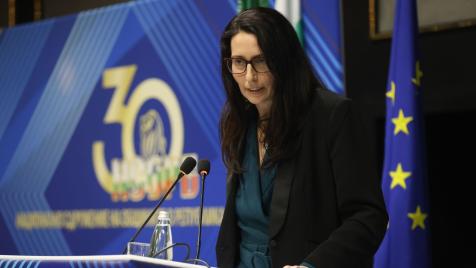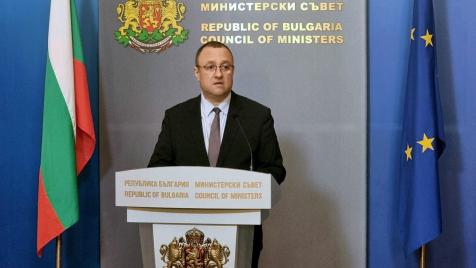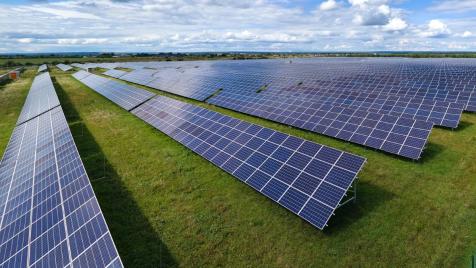Politicians and businesses push for changes to Recovery Plan
All insist on reviewing the commitment to limit coal production

© ECONOMIC.BG / Красимир Свраков
Bulgarian business called for changes in the Recovery Plan next year during the Powers Summit forum, of which Economic.bg is a media partner. In addition to employers' organisations, the same request was made by some of the political forces. The focus of discontent was largely on Bulgaria's commitment to curtail coal-fired power generation, as well as the controversial battery complex near Stara Zagora.
Coal
The stage at the forum became another field for the two leading parties to once again show their divisions on the issue of Bulgarian coal plants. GERB's energy expert Delyan Dobrev again criticised Bulgaria's commitments to limit coal capacity and described a gloomy picture in which the economy would shrink by around 4% similar to the coronacrisis in this scenario. If the plants are not shut down, but only operate during the busiest periods, as proposed by "Keep the Change", Dobrev sees no business logic.
I haven't heard of a business that pays costs for 12 months but only operates for 3," he stressed, calling for the convening of a NCCC and a change in the coal commitment set out in the National Recovery Plan.
His position was supported by his colleague, former GERB energy minister Zhecho Stankov, who said the coal industry would have lost more than 6 billion BGN by 2025 under the commitment set in the Recovery Plan.
An appeal to rethink the commitment was also made by the chairman of the Bulgarian Chamber of Mining and Geology, Nikolay Valkanov, who pointed out that Germany is currently increasing its coal power production.
An opportunity for change
The Bulgarian Industrial Capital Association (BICA), for its part, stressed that "new chapters in the Recovery Plan" are to be opened next year and this time should be used to update several strategic documents.
"Next year there is expected to be a shortage of gas, high prices will remain for a long time and we should not restrict energy," AIKB Chairman Vasil Velev added.
Similar appeal was made by the representative of KRIB Stoyan Stavrev.
"We are facing a mandatory change in the Recovery Plan. Let's sit together and make sure that the funds are allocated wisely," he urged.
Deputy Prime Minister Atanas Pekanov also admitted that the situation in the energy sector has changed radically since the beginning of the year.
"In order not to have unrealistic expectations, we need to understand that the REPowerEU mechanism, under which supplements can be made, will also lead to a rethinking and renegotiation of the chapters in the energy sector," the caretaker prime minister said.
He said renegotiation on other projects and targets could hardly be justified with the crisis.
EC is disciplined, CEE is not
The European Commission is extremely disciplined and inflexible. It did not allow compromises and not a single country in Central and Eastern Europe managed to receive both its payments this year, with the exception of Croatia, explained UniCredit's Eastern Europe Director Teodora Petkova.
She added that only Romania, Poland and Slovenia dared to ask for the loan funds due to them this year.
"Romania even asked for 100% and that was a pretty good decision, given the rising interest rates," Petkova added.

 Antoniya Simova
Antoniya Simova 




